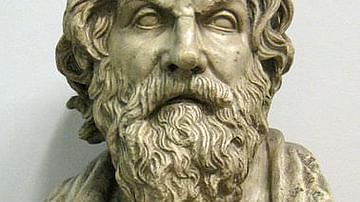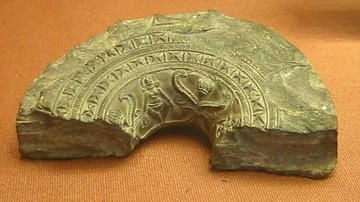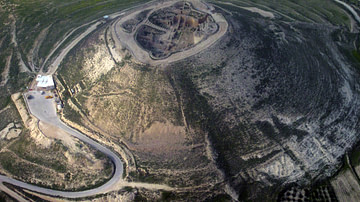Search
Search Results

Definition
Horus
Horus is the name of a sky god in ancient Egyptian mythology which designates primarily two deities: Horus the Elder (or Horus the Great), the last born of the first five original gods, and Horus the Younger, the son of Osiris and Isis...

Article
A Visual Who's Who of Greek Mythology
Achilles The hero of the Trojan War, leader of the Myrmidons, slayer of Hector and Greece's greatest warrior, who sadly came unstuck when Paris sent a flying arrow guided by Apollo, which caught him in his only weak spot, his heel. Adonis...

Definition
Ivan III of Russia
Ivan III of Russia (Ivan the Great) was the Grand Prince of Moscow and Russia from 1462 to 1505. Ivan III was born in 1440 to Grand Prince Vasily II of Moscow (r. 1425-1462) and his wife, Maria Borovsk (l. c. 1420-1485). He served as co-ruler...

Definition
Black Kettle
Black Kettle (Mo-ta-vato/Mo'ohtavetoo'o, l. c. 1803-1868) was a chief of the Southern Cheyenne who became famous as a "peace chief" – seeking peaceful relations with the US government – as opposed to war chiefs such as Roman Nose (Cheyenne...

Article
Enuma Elish - The Babylonian Epic of Creation - Full Text
The Enuma Elish (also known as The Seven Tablets of Creation) is the Babylonian creation myth whose title is derived from the opening lines of the piece, "When on High". The myth tells the story of the great god Marduk's victory over the...

Image
The Three Magi
A Byzantine wall mosaic from Ravenna showing the three Wise Men or Magi (aka the Three Kings) who visited the birth of Jesus Christ in Bethlehem. The three figures are traditionally named as Balthazar, Melchior, and Caspar, although they...

Article
The Life of Antisthenes of Athens in Diogenes Laertius
Antisthenes (c. 445-365 BCE) was a Greek philosopher who founded the Cynic School of Athens. He was a follower of Socrates and appears in Plato's Phaedo as one of those present at Socrates' death. He is one of the primary interlocutors in...

Definition
Arthashastra
The Arthashastra is an Indian treatise on politics, economics, military strategy, the function of the state, and social organization attributed to the philosopher and Prime Minister Kautilya (also known as Chanakya, Vishnugupta, l. c. 350-275...

Definition
Herod the Great
Herod I, or Herod the Great (c. 75 – 4 BCE), was the king of Judea who ruled as a client of Rome. He has gained lasting infamy as the 'slaughterer of the innocents' as recounted in the New Testament's book of Mathew. Herod was, though, a...

Definition
Ivar the Boneless
Ivar the Boneless (Old Norse Ívarr hinn Beinlausi) is known from Old Norse and medieval Latin sources as the son of the legendary Viking king Ragnar Lothbrok, in these stories raiding alongside his father and brothers and becoming the ruler...